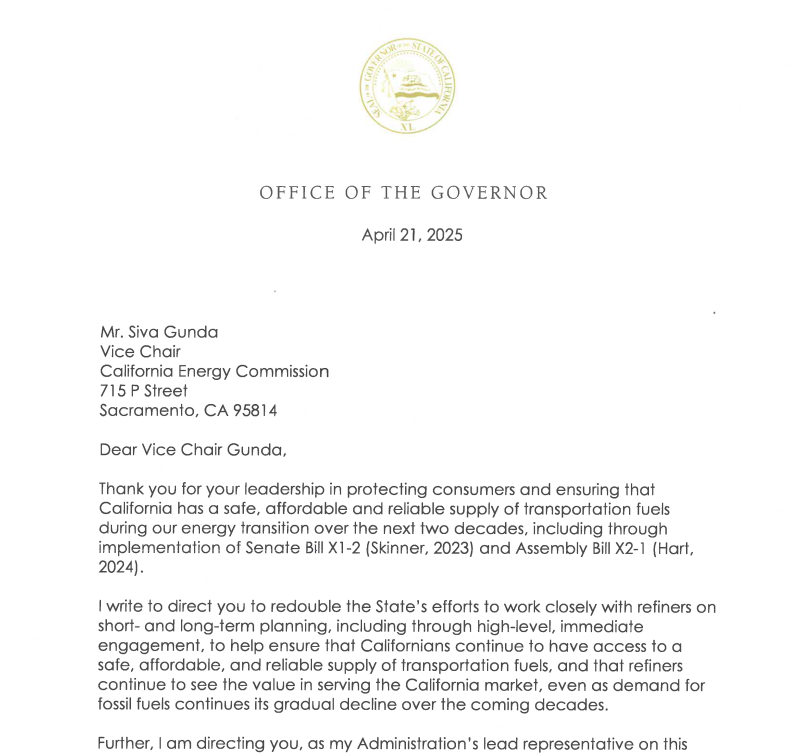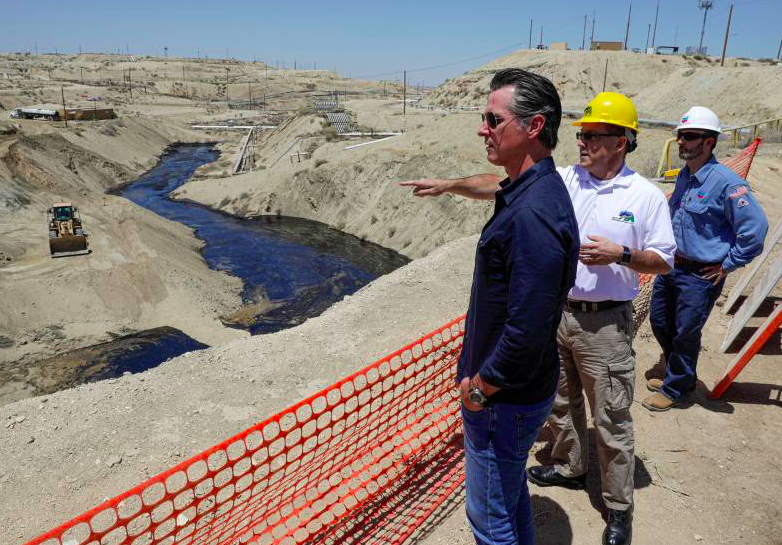Newsom Urges Regulators to Sustain California’s Oil Refineries Amid Industry Exodus
SACRAMENTO, Calif. — Governor Gavin Newsom is urging state regulators to take immediate action to prevent further closures of California’s oil refineries, following a series of shutdowns and relocations attributed to the state’s stringent environmental policies.
In a recent letter to California Energy Commission Vice Chair Siva Gunda, Newsom emphasized the necessity of maintaining a stable and affordable fuel supply during the state’s transition to cleaner energy sources. He called for high-level engagement with refinery operators and requested recommendations by July 1 on improving fuel supply management.

This appeal comes in the wake of Valero Energy’s announcement to shut down or restructure its Benicia refinery by April 2026, a facility that accounts for 9% of California’s refining capacity. Similarly, Phillips 66 plans to close its Los Angeles-area refinery by the end of 2025, impacting approximately 8% of the state’s refining capacity.
Newsom’s administration has previously enacted legislation aimed at controlling gas prices, including laws requiring refineries to maintain larger fuel reserves and capping profits to prevent alleged price gouging . However, these measures have faced criticism from industry leaders and neighboring states.
Chevron, a major player in California’s oil industry, expressed concerns over the increased regulatory burdens, stating that such policies could make it challenging to continue operations within the state. The company has already announced plans to relocate its headquarters to Texas, citing the state’s unforgiving business environment.
Labor groups have also voiced apprehension, arguing that the new laws could compromise worker safety by allowing state officials without refinery experience to dictate maintenance schedules.
Governors from neighboring states, including Arizona’s Katie Hobbs and Nevada’s Joe Lombardo, have urged Newsom to reconsider the storage requirements, warning that such mandates could lead to increased fuel costs in their states due to supply constraints.
Despite these concerns, Newsom maintains that the regulations are necessary to protect consumers from volatile gas prices and to hold oil companies accountable. He attributes market instability to previous federal policies and emphasizes the state’s commitment to transitioning away from fossil fuels.
Critics argue that California’s aggressive climate policies and regulatory environment have driven the oil industry out of the state, leading to reduced refining capacity and increased reliance on fuel imports. They contend that these factors contribute to the state’s high gas prices, which are among the highest in the nation.
As the state continues its push towards a greener economy, the balance between environmental goals and economic realities remains a contentious issue. Newsom’s recent plea to regulators underscores the challenges of maintaining energy stability while pursuing ambitious climate objectives.
With the July 1 deadline approaching, the California Energy Commission is tasked with developing strategies to ensure a reliable fuel supply. The outcomes of these efforts will likely have significant implications for the state’s energy landscape and its relationship with the oil industry.
As California navigates this complex transition, the decisions made in the coming months will be critical in shaping the state’s energy future and addressing the concerns of consumers, industry stakeholders, and neighboring states.






